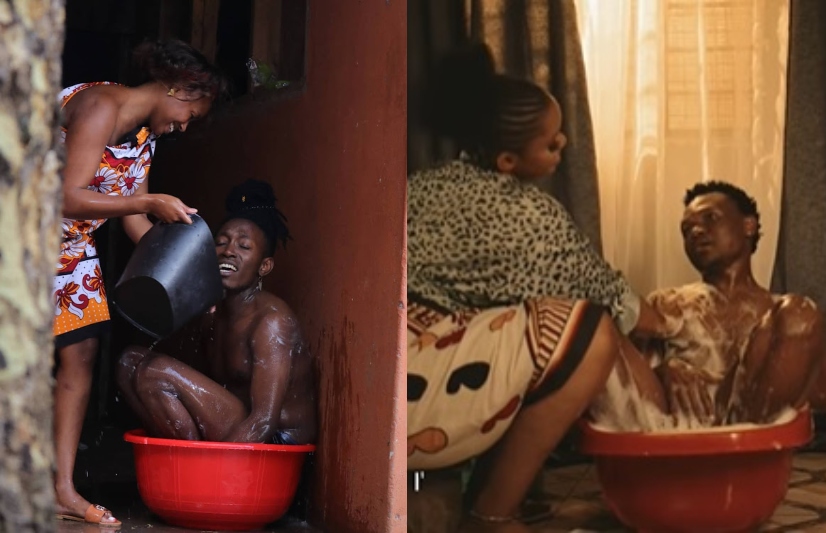Mbosso recently released a new video for his song called ‘Amepotea’ which is trending for both good and bad reasons.
The video has sparked a debate due to what is claimed to be compatible with the music video released by the Kenyan artiste Bensoul.
In Mbosso’s ‘Amepotea’ music video, there are scenes where the Bongo singer is seen naked in the tub being bathed by a girl who loves him.
These events are said to coincide with Bensoul’s video titled ‘Nairobi’ where he is also seen in a tub being bathed by a young woman.
Many Bensoul fans have accused Wasafi Records of stealing the idea from Bensoul’s music video, claiming that Mbosso’s video is a direct copy of ‘Nairobi’.
They say that it is no coincidence that the events of Mbosso being bathed in a bathtub are very similar.
On the other hand, some fans of Mbosso and Wasafi Records defended the video saying that the incident of being bathed in a tub is not new and that Mbosso’s video is unique in its own way.
They say that the scenes in Mbosso’s video are not copied directly from Bensoul’s video but are a common idea used in music videos.
This controversy highlights the importance of originality and creativity in the music industry.
Although it is not uncommon for artists to borrow an idea from a fellow artist, it is important to give credit where it is due and avoid direct imitation.
The controversy surrounding Mbosso’s ‘Amepotea’ video and the alleged similarity of Bensoul’s ‘Nairobi’ video raises questions about the ethics of borrowing ideas in the music industry.
It is important for artists and record labels to maintain originality and creativity in their work, while also giving credit to those whose ideas they may have borrowed.
‘Amepotea’
‘Nairobi’



